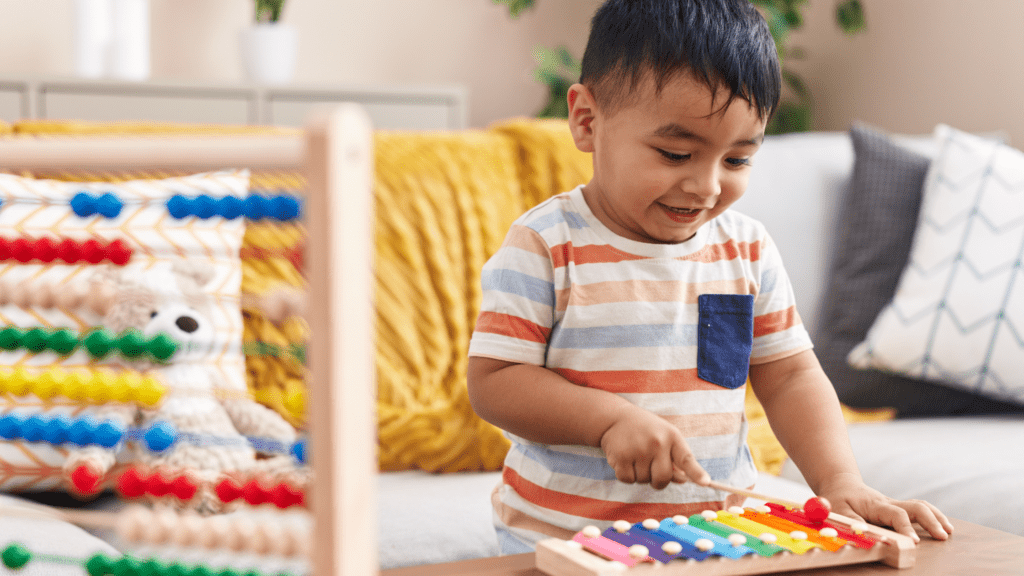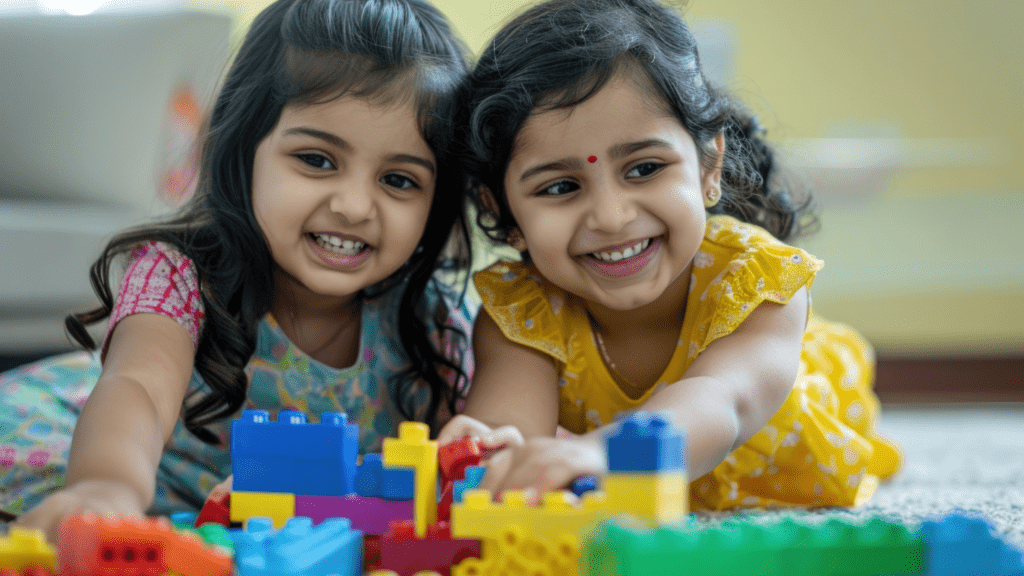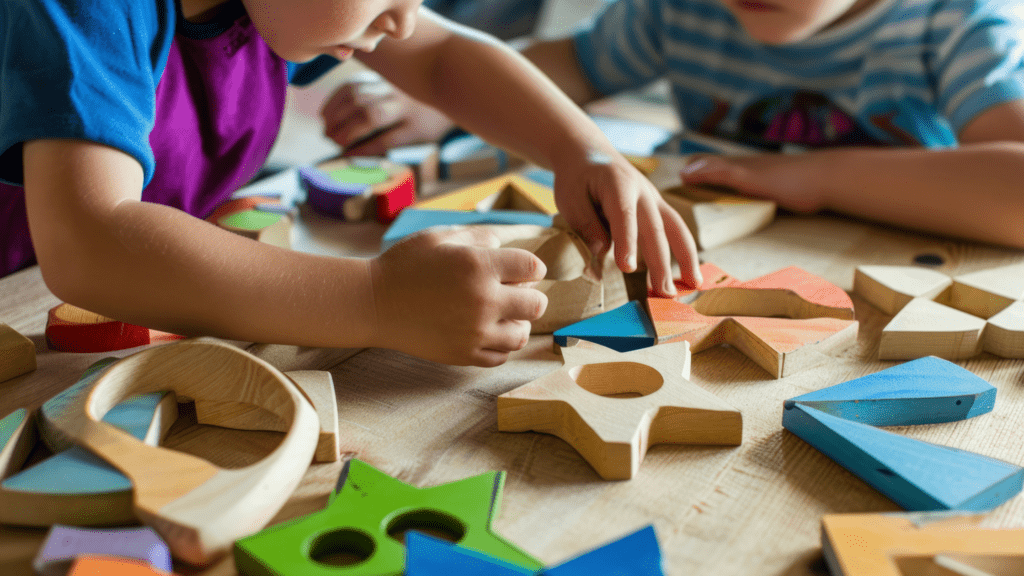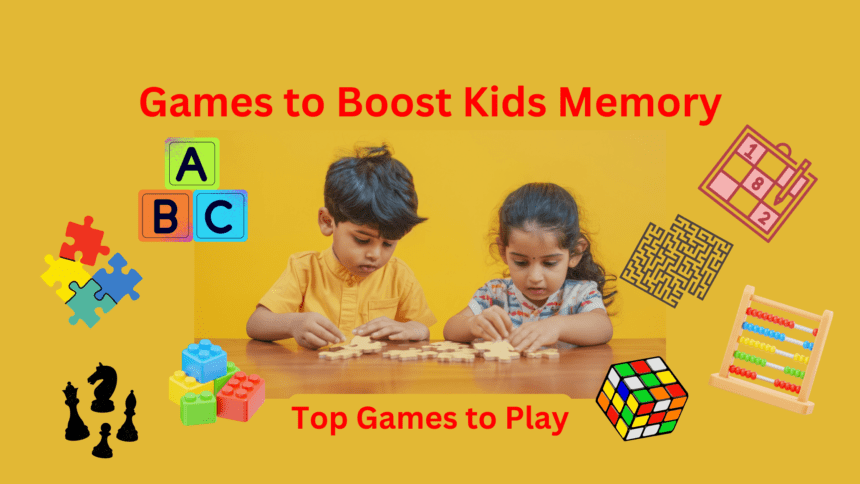Introduction
In today’s digital age, where distractions are rampant, cultivating memory and concentration in children is more crucial than ever. Games offer an engaging and effective method to bolster these cognitive abilities in a playful manner. This article explores the best games for kids specifically designed to enhance memory and concentration, providing both fun and educational benefits.
The Importance of Memory and Concentration in Childhood Development
Memory and concentration are pivotal in a child’s development. These skills form the foundation for learning, enabling children to absorb new information, solve problems, and navigate their environment effectively. Strengthening these cognitive abilities early on can lead to improved academic performance and better life skills. Games play a significant role in this development by offering stimulating and enjoyable ways to practice these skills.
Criteria for Selecting Memory and Concentration Games
When selecting the best games for kids to enhance memory and concentration, it’s important to consider several factors. Age-appropriateness ensures that the game is neither too simple nor too complex for the child. Engagement level is crucial, as a game should be captivating enough to hold a child’s attention. Finally, a balance between challenge and fun is essential; the game should provide a mental workout without being overly frustrating. With these criteria in mind, we present the ten best games for kids to enhance memory and concentration.

List of 10 Best Games for Kids and their Benefits
Game 1: Simon Says
How It Works
Simon Says is a timeless game where one player, acting as “Simon,” gives commands starting with “Simon says.” The other players must follow these commands. If a command is given without “Simon says,” the players should ignore it.
Benefits for Memory and Concentration
This game is one of the best games for kids because it enhances auditory processing and improves attention to detail. Children must listen carefully and follow instructions precisely, which bolsters their concentration and working memory. The game’s simplicity and interactive nature make it a favorite among young children.
Game 2: Memory Card Match
How It Works
Memory Card Match involves a set of paired cards placed face down. Players take turns flipping two cards at a time, aiming to find matching pairs.
Benefits for Memory and Concentration
This game is particularly effective in strengthening visual memory and recall, making it one of the best games for kids. The need to remember the location of previously revealed cards enhances short-term memory and concentration. It’s a straightforward yet highly effective game that children enjoy.
Game 3: Chess
How It Works
Chess is a strategic board game where two players move pieces with distinct rules to checkmate the opponent’s king. Each piece has unique movement capabilities, requiring players to think several steps ahead.
Benefits for Memory and Concentration
Chess is widely regarded as one of the best games for kids to develop strategic thinking and problem-solving skills. It requires planning, foresight, and the ability to remember and anticipate opponents’ moves, thereby improving memory and concentration. The complexity of chess makes it suitable for older children who can grasp its strategic depth.
Game 4: Puzzles
How It Works
Puzzles come in various forms, from jigsaw puzzles to crosswords, requiring players to fit pieces together to form a complete picture or solve a problem.
Benefits for Memory and Concentration
Puzzles are among the best games for kids for enhancing spatial awareness and problem-solving skills. They require sustained focus and the ability to visualize and remember piece shapes and positions. The process of finding and fitting the right pieces together improves both concentration and memory, making puzzles a staple in cognitive development.

Game 5: Sudoku
How It Works
Sudoku is a number placement puzzle where players fill a 9×9 grid with digits so that each column, row, and subgrid contains all the numbers from 1 to 9.
Benefits for Memory and Concentration
Sudoku is one of the best games for kids to sharpen logical reasoning and pattern recognition. It demands concentration and the ability to remember number placements and strategies. The game’s structure encourages children to think critically and maintain focus for extended periods.
Game 6: Scrabble
How It Works
Scrabble is a word game where players use letter tiles to create words on a board, scoring points based on letter values and placement.
Benefits for Memory and Concentration
Scrabble is included in the list of the best games for kids because it enhances vocabulary and spelling skills. It also requires players to recall and manipulate letter combinations, boosting memory and cognitive flexibility. The challenge of forming words from a limited set of letters keeps children engaged and mentally active.
Game 7: Jigsaw Puzzles
How It Works
Jigsaw puzzles involve fitting interlocking pieces together to form a complete image. The puzzles range in difficulty based on the number of pieces and the complexity of the image.
Benefits for Memory and Concentration
Jigsaw puzzles are undeniably among the best games for kids for improving visual perception and memory. They require concentration to identify piece shapes and colors and remember their possible placements. The satisfaction of completing a puzzle also provides a motivational boost, reinforcing the benefits of sustained focus.
Game 8: Matching Games
How It Works
Matching games involve finding pairs of related items, such as pictures or words, from a mixed set. These games can be played with cards, online, or with physical objects.
Benefits for Memory and Concentration
Matching games are some of the best games for kids for boosting visual and associative memory. They require children to remember the location and relationship between different items, enhancing memory retention and concentration. The simplicity and variety of matching games make them suitable for various age groups.
Game 9: Concentration Grid
How It Works
A concentration grid is a matrix filled with numbers or letters where players find and sequentially identify specific items within a time limit.
Benefits for Memory and Concentration
This game is one of the best games for kids because it enhances visual scanning and short-term memory. The need to quickly locate and recall items fosters sustained attention and mental agility. Concentration grids can be customized to various difficulty levels, making them adaptable to different age groups and abilities.
Game 10: Sequence Games
How It Works
Sequence games involve remembering and repeating a sequence of items, actions, or sounds in the correct order. Examples include Simon (the electronic game), Bop It, or even simple hand-clap games.
Benefits for Memory and Concentration
Sequence games are among the best games for kids for improving sequential processing and working memory. They require focus to recall and reproduce sequences accurately, boosting memory and attention to detail. These games are often fast-paced and engaging, keeping children entertained while they learn.

Conclusion
Incorporating the best games for kids into daily routines can significantly enhance children’s memory and concentration. By turning cognitive exercises into enjoyable activities, we can foster a love for learning and mental agility in the formative years. The games mentioned above provide a variety of challenges and benefits, ensuring that children develop these crucial skills in a fun and effective manner.
In conclusion, the best games for kids to enhance memory and concentration are those that are engaging, challenging, and educational. From classic games like Simon Says and Memory Card Match to strategic games like Chess and Sudoku, these activities provide invaluable cognitive benefits. By integrating these games into children’s playtime, parents and educators can support the development of essential mental skills, paving the way for better academic performance and overall cognitive health.
By selecting the best games for kids, we not only offer them a fun and engaging way to spend their time but also contribute to their cognitive development in meaningful ways. Whether it’s through enhancing their memory, improving their concentration, or developing strategic thinking, these games provide a solid foundation for lifelong learning and mental resilience. Encourage children to play these games regularly and watch as their memory and concentration skills flourish.
For more content follow Humstory













